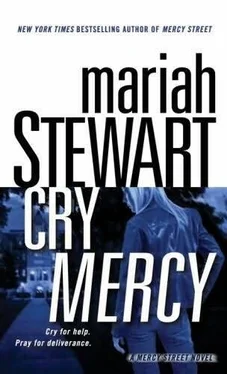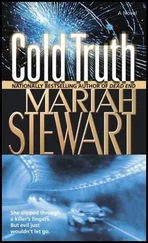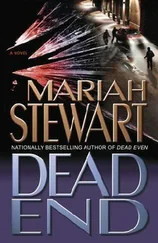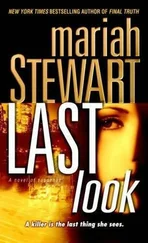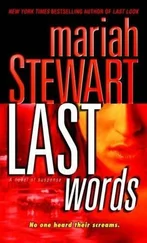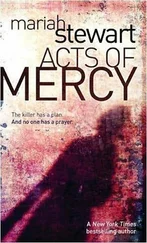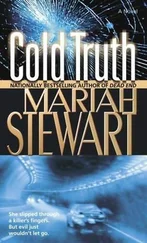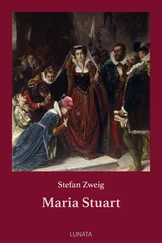He turned onto Evergreen Road without even realizing he'd done so. A quarter mile more and he made a second right, this time onto the long drive his grandfather had had paved almost twenty years earlier. Nick never drove up that lane without hearing his grandmother, Angela, bending her husband Dominic's ear over having spent so much money on the macadam.
“What, are you crazy?” She'd been incredulous when she found the entry in the checkbook. “For a driveway?”
He'd responded calmly, but from behind the safety of his newspaper. “I haven't spent all those hours and all that money on my cars to have them bottom out on a pothole, not to mention all the dust.”
The only other time she'd mentioned it, he'd silenced her with a softly said, “Gotta protect my investment, Angie,” and that was the end of that.
The house came into view before the row of cinder-block garages did. Since the passing of both grandparents, Nick had never driven up that lane without feeling his heart pinch just a little. He missed them both, and probably always would. More, maybe, even than he missed his parents.
He parked near the back porch where his grandmother's roses stretched up and over onto the roof and got out of his car, listening to the stillness there. No traffic noise, no human sounds. It was the quietest place he knew. He fingered the old key ring in his pocket, debating. House first or barn or garages? He opted for none of those, and instead, made his way down to the pond.
The air smelled clean, of new grass and the late spring flowers that grew wild. He knew the names of some-marsh marigolds, violets, cornflowers-but he'd forgotten more than he'd remembered. As a boy, learning the names of flowers hadn't been a priority. He knew roses, of course, and dandelions, and Queen Anne's lace, but it was too early still for them. He had a sudden memory of seeing a picture in one of his grandmother's magazines of a woman identified as Princess Anne, and wondering aloud if she was the lady the flower was named for, and if so, what she'd done to have been demoted from queen to princess. Wendy had laughed at him and called him a cute kid. It was the last summer they'd both spent time at the farm together. The following year, Wendy had gone off to Princeton and Nick had the farm and his grandparents to himself.
The cattails were thicker than he'd seen them in past years, and as he walked the slope down to the water, a great blue heron rose on wide wings from the reeds and took off abruptly, as much spooked by Nick as Nick had been by the bird. Geese nested amidst the grass that had grown long, and weeds grew unchecked on the bank. He put Clean around pond on his mental checklist.
The playhouse his grandfather had built on the bank still stood, but it looked as if it had taken a beating during that last winter storm. Nick pushed the door open and stepped inside. The smell of musk and dry rot hung in the air, and he added another mental note to ask Herb if he knew a good carpenter who could come out and take a look at it, see if it could be salvaged. He hated the thought of having to take it down. Wendy had moved most of the furniture up to the house at the end of the summer before she died. Belinda was too old for a playhouse, she'd told Nick, but a glance at the contents of an old bookshelf made him wonder. Pippi Longstocking. Nancy Drew. Anne of Green Gables . He picked one from the shelf and opened it, recognized the BH written in the fancy, curly script Belinda had affected when she was younger. He replaced the book on the shelf and went back outside, noting that the doorframe was rotting and the door itself loose on the hinges.
Better make that Call Herb today .
He checked the barn on his way to the house, the old door squealing like mad on its rusty hinges. Belinda's boxes were still stacked inside the door, and he carried them, one by one, up to the house where he placed them in the front hall. As he carried out the last of the cartons, he saw that the barn, too, could use some repair. He placed the box on the ground and walked back inside, taking note of the work that needed to be done. By the back door, he spied his grandfather's old John Deere tractor, the one he'd had for as long as Nick could remember. He'd retired it when Nick was in his teens, having decided that renting out his fields and having someone else plow and plant and harvest gave him more time for the things that really mattered to him.
The things that had mattered most to Dominic Perone-after his family, of course-were housed in the sturdy block garages he'd built, one after another, to accommodate them. By the time Nick was five years old, he could rattle off the names of every one of the occupants of those garages.
The 1955 Chevy. The 1959 Cadillac. The 1957 Studebaker Golden Hawk. The 1953 Oldsmobile Fiesta.
“These are the modern classics,” his grandfather would tell Nick as he cleaned a spark plug. “Yes, sir, these and the American muscle cars, they're going to bring in big bucks one day. You mark my words, Nicky.”
He'd point to the cars, ten years old or so, that he'd bought for cheap.
“GTO, Camaro, Charger, Mustang,” he'd prophesized. “These babies breathe fire.”
And then he'd open the garage that held his two very special loves. “Sixty-three Corvette Stingray split-window coupe, Nick. Instant classic. Only produced one year. Damn, but she's a beauty, isn't she?”
The other-“Sixty-eight Shelby Cobra GT 350 fast-back. This little sweetheart could shake the ground under your feet and rattle the teeth in the back of your mouth”-he'd worked on restoring only when Nick was available. It had taken two full summers to complete. Nick had never had a better time in his life. Every minute he spent working on that car had been golden, magic.
Hell, that whole summer he'd been seventeen-the summer of '89-had been magic. There'd been the hot August night he and his granddad had been glued to the TV to watch the replay of Nolan Ryan of the Texas Rangers pitching that mystical five thousandth strikeout to the Oakland A's Rickey Henderson. Five thousand strikeouts! The thought of it had made Nick's head spin. His grandmother had been sitting in her favorite chair reading The Joy Luck Club and had paused to watch the replay and peered over the top of her glasses to murmur, “I'm not sure I understand what all the fuss is about.”
The next year, Dominic sold the Shelby Cobra to pay Nick's college expenses after his mother died and his father had gone off to look for wife number three. Nick would never forget the sense of loss he felt when he found out that prized car soon would be parked in someone else's garage.
“You did what?” Nick had come very close to shouting at Dominic, something he'd never done.
“Sold it,” his granddad replied with more nonchalance than he'd probably felt. “Got a great price for it.”
“We spent two whole years on that car.” He was close to going into shock. “How could you sell it?”
“It was an investment, Nick. It was always meant to be an investment. Nothing more.”
Nothing more? As young as he'd been at the time, Nick had known rationalization when he heard it.
Even now though, almost twenty years later, the car and his grandfather both long gone, Nick almost believed he could open that garage bay and he'd see that blue car-Acapulco blue, to be precise-up on the lifts, his grandfather underneath it, a small part in one hand, the other hand gesturing for Nick to come see, to watch and to learn.
Magical days, indeed.
But if he had that car back now, what would it be worth? The last one he'd seen go at auction topped $110,000 and hadn't been in as good condition as theirs had been. But what was the point in looking back?
Читать дальше
